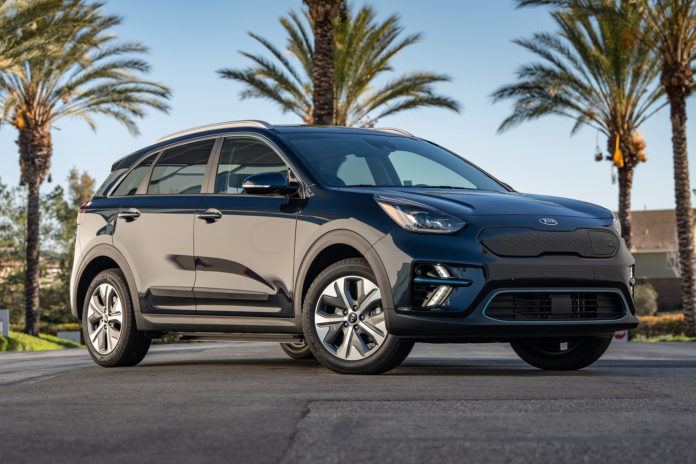
The Kia e-Niro has been ranked number one among mass-market brands in the J.D. Power 2021 Electric Vehicle Experience (EVX) Ownership Study. For this inaugural study, J.D. Power surveyed nearly 10,000 electric vehicles (EV) owners on factors including cost-of-ownership, battery range, and driving enjoyment to determine the likelihood of repurchasing and recommending an EV.
“This is another important accolade for the e-Niro, further underlying its impact on the EV market since its launch. It’s not easy to be a market leader in this segment but that’s exactly what the e-Niro is, delivering emissions-free driving capability and high-tech interior quality in a crossover that is practical, functional and fun,” said Ronan Flood Managing Director of Kia Ireland .
“The awards won by both e Niro, and indeed e Soul bode well for the Kia brand and positions us well for our future plans that will see Kia launch 11 exciting next-generation EVs by 2025. The shift to electrification has entered a new phase and we’re proud to be at the very forefront of that momentum.”
With a strong existing line-up of electric vehicles and an eye toward future transportation, Kia is moving forward with the implementation of ‘Plan S’ and will invest $25 billion by 2025 on the future of electrification, mobility services, connectivity, and autonomy.
The Kia e-Niro opens a world of possibilities for drivers who are drawn toward popular crossovers but also want the benefits that electric vehicles offer.
With 395 Nm of torque and four drive modes, the e-Niro’s robust electric powertrain gets drivers where they need to go – quickly – while enjoying advanced technology and connectivity in a stylish package that fits every lifestyle.
The U.S. EVX Ownership Study, driven by a collaboration with PlugShare, sets the standard for benchmarking satisfaction with the critical attributes that affect the EV ownership experience.
The overall EVX ownership index score measures electric vehicle owners’ satisfaction (on a 1,000-point scale) in premium and mass-market segments across seven factors: accuracy of stated battery range; availability of public charging stations; battery range; the cost of ownership; driving enjoyment; ease of charging at home; and vehicle quality and reliability.
This year’s study was fielded in October-November 2020 and surveyed 9,632 owners of 2015-2021 model year BEVs and PHEVs.








